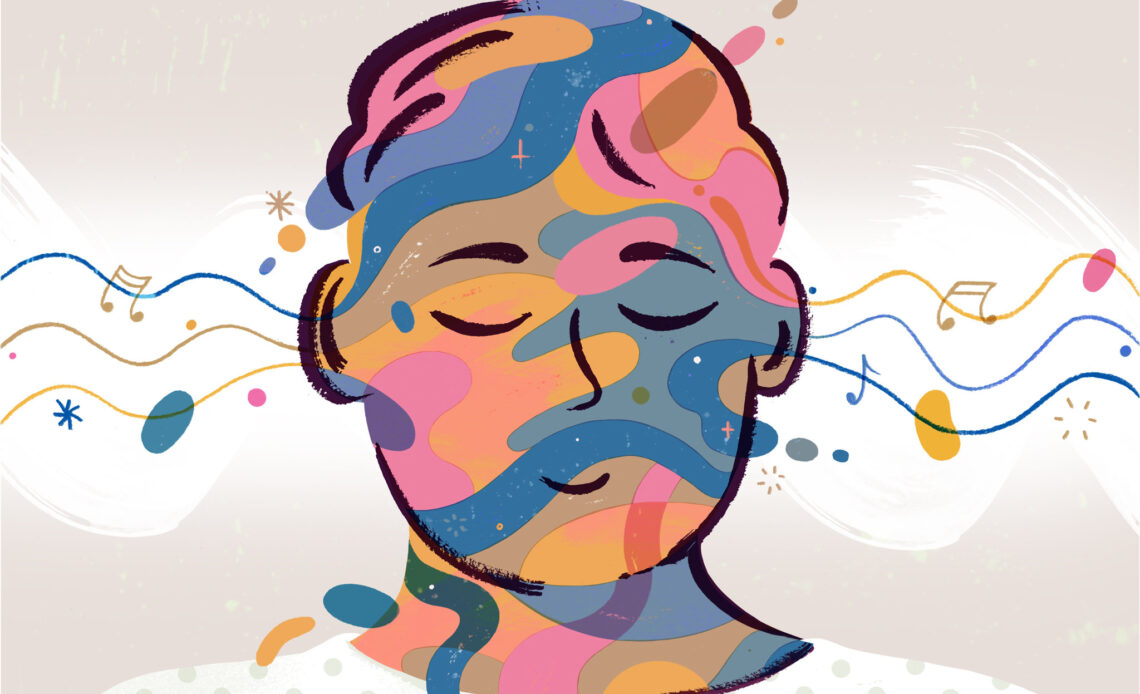
What does music mean to you? For me, it works as an escape from the tiring outside world and takes me to a more sane and quiet place. Often music takes me through nostalgia, and other times, it makes me dream of things that ‘could have been. It could mean the same to you or something else on these lines, but what we could all agree upon is the fact that music is therapeutic.
Music as therapy does not just restrict itself to a phrase but actually holds a literal meaning. Music therapy is an evidence-based treatment that helps with a variety of disorders, including cardiac conditions, depression, substance abuse, and autism, and can help with memory, lower blood pressure, reduces stress, improves self-esteem, and much more.
What is Music Therapy?
Music therapy experiences include listening, singing, playing instruments, or composing music but do not need any prior skills or talent to participate. It is a therapeutic approach that uses the natural mood-lifting properties of music to help people improve their overall well-being. Music therapy may help you physically, emotionally, spiritually, cognitively, and socially.
Formal music therapy was first used by the United States War Department in 1945 to help military service members with occupational therapy, education, recreation, and physical reconditioning.
A list of benefits includes:
- Lowering blood pressure
- Improved memory
- Enhanced communication and social skills
- Self-reflection by observing your thoughts and emotions
- Reducing muscle tension
- Developing healthy skills
- Managing pain
- Increasing motivation and joy
Types of Music Therapy
Some therapists use a combined approach of active and passive music interactions for their clients. The variety of approaches include:
Analytical Music Therapy
This type of music therapy encourages you to express your thoughts through musical dialogues such as singing or playing an instrument which you can reflect on and discuss with your therapist afterwards.
Benenzon Music Therapy
This format combines some concepts of psychoanalysis, which includes the search for your musical sound identity, something that most closely matches your internal psychological state.
Cognitive Behavioral Music Therapy
CBT approach is structured, not improvisational, and may include listening to music, dancing, singing, or playing an instrument.
Community Music Therapy
It focuses on using music as a way to facilitate change on the community level. It’s done in a group setting and requires a high level of engagement from each member.
The Bonny Method
The Bonny method of guided imagery and music (GIM) uses classical music as a way to stimulate the imagination. You explain the feelings, sensations, memories, and imagery you experience while listening to the music to your therapist.
Vocal Psychotherapy
Vocal therapy makes use of various exercises, natural sounds, and breathing techniques to connect with your emotions and impulses. This practice is meant to create a deeper sense of connection with yourself.
Who Should Visit Music Therapists?
Anybody,, regardless of their background, gender, age, and culture, can respond to music therapy and music therapy. Some of the individuals or groups that therapists help are:
- Military service members and veterans often take music therapy to deal with trauma.
- Music therapy may help with memory loss and stimulate your mind so it helps people with Alzheimer’s.
- Music therapy may help people with communication skills, relaxation and decreasing impulsivity, so it’s good for people or groups in mental health facilities.
- If you have experienced trauma and crisis, music therapy can help you eliminate those experiences and improve your mood.
- Music therapy helps decrease your pain, anxiety, fatigue and depression, so it is for people suffering from chronic pain.
- If you have a history of substance abuse, music therapy will help you big time.
What happens during Music Therapy?
There are a lot of exercises that go on during a music therapy session.
- Create music. You might compose music, write lyrics, or makeup music together
- Sing music. Use your voice to share a piece of music.
- Listen to music. Enjoy the sound and lyrics.
- Move to the music. It can be as simple as tapping your toes together or as complicated as a coordinated dance.
- Discuss lyrics. Read or listen to the lyrics of a song and talk about their meaning.
- Play an instrument. Use an instrument like a piano, guitar, drums, etc. to share music.
Before your first session, you may want to talk things over with your music therapist, so you know what to expect and can check in with your primary care physician if needed.


